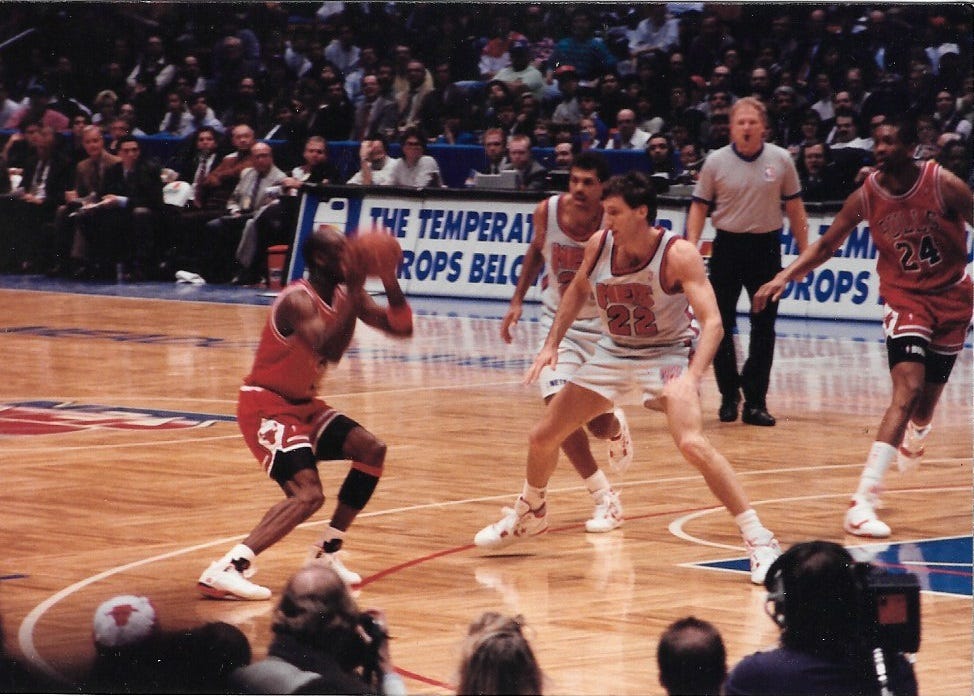What Knowing Nothing About the Super Bowl Tells You About Politics
People often aren't paying attention to the thing you care about.
Image: A football game maybe? idk. The Eloquent Peasant, CC
I am writing a Super Bowl post! It is timely!
Also ironic, because I literally know nothing about the Super Bowl. I am pretty sure it is today and I know it is in Las Vegas because I wrote a piece about trafficking myths about sporting events and interviewed Las Vegas sex workers so…I know it is in Las Vegas. But I don’t know who’s playing. I couldn’t tell you the name of any of the players. I vaguely know that Taylor Swift’s boyfriend is on one team. I can’t remember his name…is he a tight end? I think he’s a tight end. But I don’t actually know what a tight end is or does. I presume it’s not actually about how the pants fit, but that’s just a guess.
My sports knowledge, it is less knowledge than lacunae. I don’t say this to boast. And I don’t say this to express contrition. I say this because I think my understaning of the Super Bowl is a useful metric for how most people understand politics.
If you are someone who follows politics (and if you’re reading this blog, you almost certainly are) it’s difficult to get yourself into the headspace of the average citizen or the average voter. You, for example, almost certainly know that 2024 is going to be a rematch between Biden and Trump, barring some sort of act of God. You know that Trump is a rapist and an insurrectionist. You know Biden’s poll numbers are crap right now. You know the Supreme Court stripped women of abortion rights in 2022. You know who Nikki Haley is. And it probably seems to you like most people have to know these pretty obvious facts which have been covered extensively in most news outlets.
But…the Super Bowl is also given blanket coverage in most news outlets. And yet, I am here to tell you that, with little effort, you can come up on Super Bowl weekend without even knowing the teams who are playing. You can easily not know where it is occurring. You can even not know what day it’s taking place (it’s only a fluke I happen to know this year.)
People who aren’t paying attention to politics are not just a little less knowledgeable than you. They are in many cases sweepingly ignorant of even basic facts. Large numbers of voters don’t know who the vice president is. They can’t name a Supreme Court justice.
If you don’t even know the players, are you likely to have deeply informed opinions about, say, Trump’s indictments, or the war in Gaza, or Hur’s report on Biden’s handling of classified documents? Or are you likely to not even know what any of those things are?
In sports, as in most things, when you know more about the subject, you’re more knowledgeable about the subject. If you know what a tight end is, you’re probably going to be able to talk about offensive strategy with more nuance than someone who doesn’t know what a tight end is. (I’m guessing a tight end is an offensive position; if not, make the needed substitutions.)
Politics is different though. Political strategy and political arguments are predicated in large part on figuring out what voters think and how voters will react. But if you know a lot about politics—if you can name all the Supreme Court justices—you’re a weirdo geek who by definition is in a very different headspace than the normal voter. Which means that everyone who is commenting on or writing about politics is in some real way less qualified to analyze politics than someone who doesn’t know who the vice president is.
In talking about politics, it’s a useful exercise to occasionally remind yourself that for most people, politics isn’t an issue they know or care much about. What if you were asked to give a consequential opinion about an area in which you have neither expertise nor interest — sports, video games, tiktok videos, what have you? That’s how most voters approach the ballot box.
When you wonder why voters aren’t outraged by this, or aren’t reacting to that, the answer is generally that they don’t know about it, because they’re not paying attention. You can get frustrated about that. But the fact is that nobody pays attention to everything, and people often just aren’t interested in politics, and feel (with some justice) that they have little power individually to affect it. You can shake your fist at the lack of civic-mindedness of the American electorate—but that’s unlikely to do anything except further alienate people (if they’re paying attention, which, again, they almost certainly aren’t.)
Campaigns spend millions and millions of dollars to get people who don’t want to pay attention to tune in even minimally to politics for a week or two. So, if you wonder why electoral politics seem cringe or aren’t issue focused or don’t message in the ways you’d like—it’s useful, at least occasionally, to recognize that if you are thinking about campaigns that much, the campaigns are pretty deliberately not talking to you. They’re directed at people like me, who don’t know which teams are playing in the Super Bowl.




I think there’s truth in this, though impossible to know the minds of hundreds of millions of people. But I’m struggling to accept equating an entertainment event and what’s essential to be an informed citizen in a democracy (which relies on it).
Unfortunately, many intended targets of the campaign ads are not unaware of the competitors, but rather do not seek much in the way of fact-based information to make decisions as to who they will support. They support their team because it is their team.